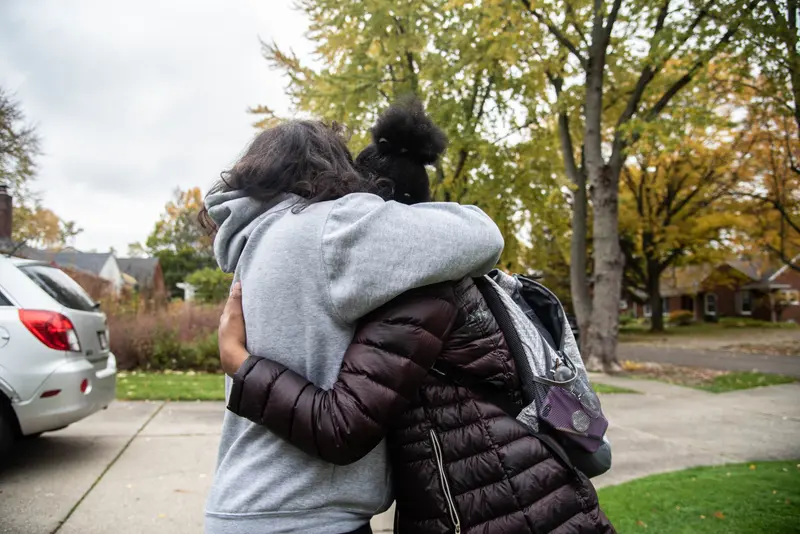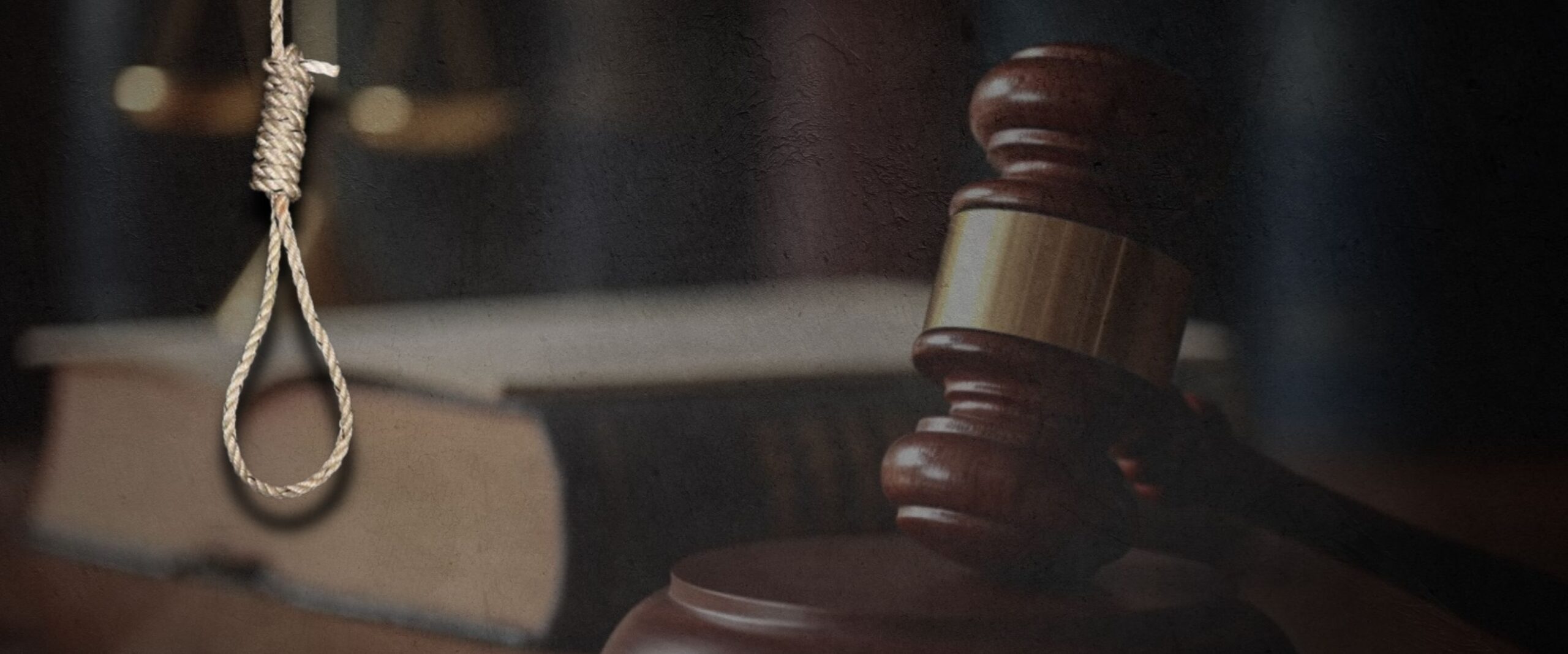Michigan Enacts Laws to Reform Its Juvenile Justice System
A vaccine against tuberculosis has never been closer to reality. But its development slowed after its corporate owner focused on more profitable vaccines.

In 2020, the detention of a Michigan teenager for failing to do her homework drew widespread outrage: protests outside the facility where she was held and petitions calling for her release. More broadly, the case of the girl identified as Grace put scrutiny on a troubled system that allowed a 15-year-old to be locked up for months for a noncriminal offense.
The following year, Gov. Gretchen Whitmer appointed a task force to study the state’s juvenile justice system. It recommended changes to state law, policy and funding, many of which advocates had been calling for.
On Tuesday, more than three years after ProPublica highlighted Grace’s case, Michigan’s lieutenant governor signed bipartisan legislation intended to transform how the state handles young offenders.
The package of 19 bills signed by Lt. Gov. Garlin Gilchrist II aims to keep young people out of the court system and detention when they get in trouble and instead provide more funding for community-based help, such as family counseling and mental health treatment. Other reforms include eliminating most fines and fees for juvenile defendants and their families and providing state funding for attorneys to represent young people who want to appeal their cases but can’t afford legal help. (Gilchrist signed the bills because Whitmer was unavailable and criminal justice reform has been a key interest for the lieutenant governor.)
Grace’s mother attended the bill signing.
“It was emotional because I’m like, This is happening, it really is happening, and it is going to benefit so many youth,” she said.
Grace was 15 and the pandemic was just starting when she failed to do her online homework, a requirement of her probation the year before for fighting with her mother and stealing a cellphone, which was returned hours later. A judge sentenced her to a juvenile detention center in a Detroit suburb because of the violation.
A Michigan appeals court ordered her release about a month after ProPublica published its investigation. She has since graduated from high school and is in college.
Grace, who ProPublica has identified by her middle name to protect her identity, called the reforms “a victory for youth and a step toward breaking the pipelines and cycles.”
“I hope we can continue to learn from the youth of yesterday to better support, guide and understand the youth of the future,” she wrote in a text message.

Jason Smith, executive director of the Michigan Center for Youth Justice, an advocacy group, said that Grace’s case spurred necessary change. Until then, Michigan leaders had been focused on reforming the adult criminal justice and child welfare systems, but juvenile justice had been less of a priority.
“It definitely was a catalyst for getting folks, especially at the state level, to take juvenile justice reform seriously,” Smith said. “This was an opportunity to really act and address some long-standing issues within the system.”
Many of the changes were recommended last year by the Michigan Task Force on Juvenile Justice Reform, chaired by Gilchrist, with members including judges, lawmakers, court officials and families that had experience in the system. The group spent a year digging into why Michigan incarcerates so many young people for noncriminal offenses and then suggested ways to reduce the number. The task force found that decisions about whether to detain a juvenile as well as access to services, such as mental health treatment, often depend on where you live.
Data obtained by the task force from 32 counties, representing about 55% of the juvenile population, determined that roughly 23% of cases referred to courts by prosecutors were for noncriminal offenses such as truancy, running away and incorrigibility. These “status offenses” are only punishable because the person is a minor. An additional 26% of cases were for low-level misdemeanor offenses. Nearly 12% involved children 12 and under.
The legislative changes will not eliminate the detention of children for technical violations of probation or for status offenses, even though that was recommended by the task force. Some states have outlawed that practice. According to 2017 federal data, Michigan held more young people for status offenses than 46 other states, a ProPublica investigation found. Nearly half of those juveniles were Black, and the majority were female.
Still, through changes in policy and funding, the bills aim to keep low-level offenses out of the courts altogether and, when young people are in court, to steer them toward community services rather than detention.
“Every system that does something other than prepare a young person to be successful is a system that desperately needs to be reformed,” Gilchrist, a Democrat, said at the bill signing in Detroit. “There are a lot of things that you can do to help a person besides lock them up. And so we need to have more options, we need to have more choices, and those choices need to be better supported. And this provides a pipeline and a pathway for more of those services to be available for more people in Michigan.”
One reform signed into law Tuesday requires that courts and law enforcement use screening tools to assess a young person’s risks and needs before deciding whether detention is the right option. The standardized assessments are designed to match youth with the most appropriate level of supervision; only some counties in Michigan currently use these tools.
The legislation also prioritizes state funding for community-based services — such as family counseling, mental health support and substance abuse treatment — over detention and residential placements.
Under the current system, the state’s Child Care Fund Unit reimburses counties 50% for juveniles diverted to community programs. The state will now instead pay 75% of those costs, but still cover only 50% of the cost of detention and longer-term residential placement. The change could encourage county courts to rely more on community service programs because they would get more of the cost reimbursed by the state.
State funding also could be used for what is known as “pre-arrest diversion,” which would allow law enforcement to connect children to services without them being arrested or ordered to court.
Another reform establishes an Office of the Child Advocate, which will be responsible for investigating complaints about juvenile justice facilities, including detention facilities. Until now, a similar office only was responsible for investigating complaints related to children in the welfare system.
Most of the laws take effect Oct. 1 to allow time for the state to provide the increased reimbursements to the counties for community services and for courts to adjust to the changes. The legislation establishing the Office of the Child Advocate is expected to take effect soon.
One bill that did not pass before the end of the legislative session would have mandated legal representation for young people in the criminal justice system who can’t afford it, and it would have required the state to pay for it. The law also would have provided training for attorneys and oversight to help ensure quality representation.
While a separate new law will provide access to attorneys for youth appealing their cases, there is currently no state funding for juvenile defense at the earlier stages, something that Grace’s mother said is crucial for a more just system.
“While there has been progress,” she said, “there is more progress to be done.”
ProPublica is a nonprofit newsroom that investigates abuses of power. Sign up for Dispatches, a newsletter that spotlights wrongdoing around the country, to receive our stories in your inbox every week.
ProPublica is a nonprofit newsroom that investigates abuses of power. Sign up for Dispatches, a newsletter that spotlights wrongdoing around the country, to receive our stories in your inbox every week.




.jpg)
.jpg)
.jpg)




